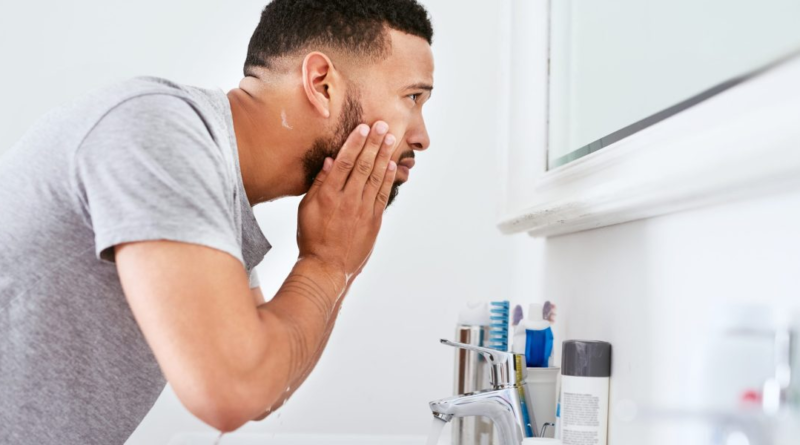5 signs your skin is just as stressed out as you are
Stress shows up in sneaky ways: poor sleep, irritability, and even gut issues. If you start to notice that your complexion is looking dry, red, or otherwise irritated, you may be encountering another yet another form of stress in disguise.
“The skin represents the largest organ of the body, and is prone to the same effects of stress that other organ systems are as well. Excess or prolonged stress may impact the normal cellular function of skin cells or how the immune system interacts with skin,” says dermatologist Dr. Brendan Camp. In other words, when you’re feeling agitated and anxious, your skin may mirror your feelings.
Addressing your skin’s stress is a task that requires both inner work and outer work. Below, Camp and dermatologist Dr. Blair Murphy-Rose share the signs that your complexion is stressed and offer their best advice for chilling it out.
Signs of stressed skin
According to Murphy-Rose, the main culprit of stressed skin is a hormone called cortisol. While the cortisol response is a vital survival response for the body, unnecessary increases in cortisol due to work stressors, loss of sleep, or personal issues can cause a negative domino effect on your body.
1. Acne/oily skin
“Among many functions, cortisol increases oil production from sebaceous glands, which worsens acne,” says Murphy-Rose. So, if you’re noticing more whiteheads and blackheads during challenging work weeks or after long days of traveling, know that all that stress may be the reason why.
2. Accelerated signs of aging
Stress may also make the skin look older than your biological age. “Prolonged stress signals may contribute to premature aging of the skin in the form of fine lines, wrinkles, and skin laxity,” says Camp.
3. Redness, flakiness, hives, and itching
With a deadline approaching, you may also look in the mirror and notice redness or flakiness. “Redness occurs when superficial vessels in the dermis dilate and impart a pink or red hue to the skin,” says Camp. He and Murphy-Rose agree that this is yet another case of your body projecting its feelings onto your skin—so take note.
4. Increased rosacea or psoriasis flare-ups
Those with rosacea or psoriasis may find that their symptoms worsen during periods of intense pressure at the office or home. “High cortisol levels also cause immune system dysregulation triggering inflammatory responses in the skin that worsens psoriasis and eczema, among many other conditions. Increased inflammation brings about redness, flakiness, and itching,” Murphy-Rose says.
5. Cold sores
Cold sores, painful blisters that appear on the lips and mouth, tend to manifest in tumultuous times as well.
How to calm stressed-out skin
Long story short: Your body has many ways of telling you that you need to slow down and decompress. So, how do you make sure you’re listening? Ahead, Camp and Murphy-Rose share how to extinguish stress from the inside out.
1. Prioritize your mental well-being
While there are plenty of creams and topicals you can use to soothe your skin, de-stressing your body’s largest organ really begins with taking care of your mental health. “In addition to treating conditions with medications, I often counsel patients about the importance of making lifestyle modifications to reduce stress levels in order to achieve the best outcome,” says Murphy-Rose.
She urges you to prioritize whatever calms you down. For example, maybe you love to read the paper or have a long coffee date with a friend. Think about your favorite equivalent of a chill pill, and take it.
2. Eat a well-balanced diet
Since your diet is tied to skin health, eating well-balanced meals may also help your skin find its equilibrium. Make sure you’re eating lean proteins, healthy fats, and a nice mix of leafy greens and fruits.
3. Choose your skin care wisely
When your skin is freaking out, paring down your products can also go a long way. “Editing your skin care routine is an essential step in helping to reset your skin and allow it to destress,” says Camp. “A skincare routine that includes multiple products is more likely to cause irritation in the form of contact dermatitis, dryness, redness, acne formation, stinging, or burning.”
He recommends reaching for tubes that contain niacinamide, a B vitamin complex that soothes the skin; ceramides, or super-hydrating lipids that protect your skin from the environment; and green tea extract. “Green tea extract and other antioxidants help neutralize the effects of free radicals on skin. Free radicals are unstable oxygen molecules that can damage cellular structures like DNA, lipids, and protein,” he explains.
4. Prioritize sleep and exercise
“Making lifestyle changes that reduce your stress levels can significantly improve skin health and control stress-related skin issues,” says Murphy-Rose. Logging a sufficient amount of sleep and exercise can help keep your stress levels at bay, so do your best to wind down in the evenings and get moving during the day.
5. Seek treatment for acne and other skin conditions
Even if you’re trying your best to unwind and care for your mind, it’s still a good idea to see a dermatologist if your skin issues persist. For example, if you continue to notice acne flare-ups or psoriasis spots, it’s probably time to ask your doctor what you can do to treat these conditions head-on. Just maybe meditate first, okay?
More on stress management:




